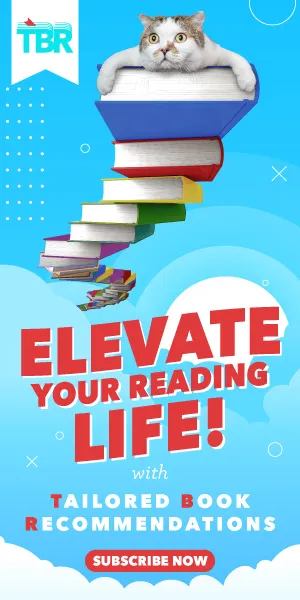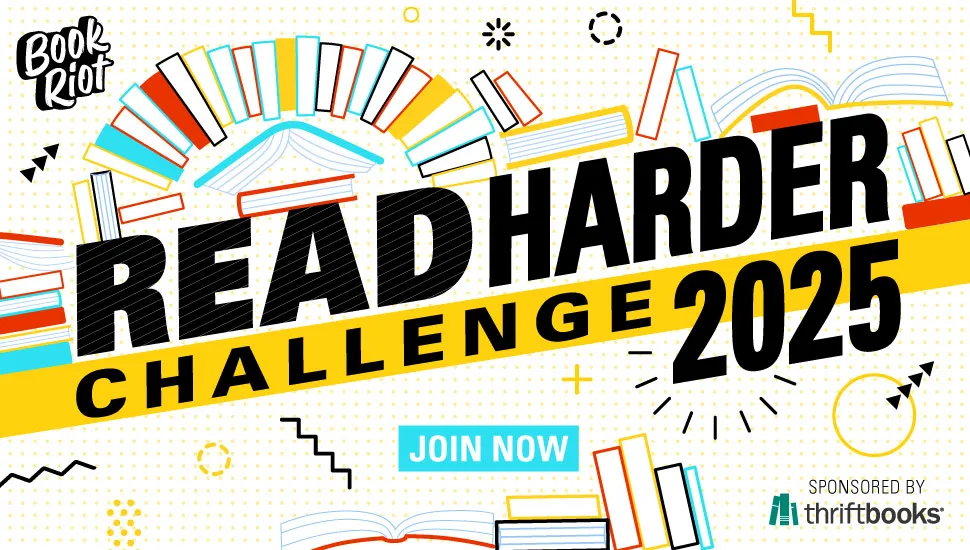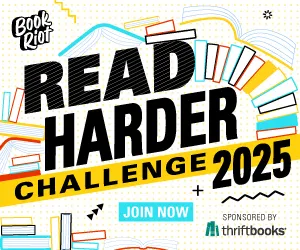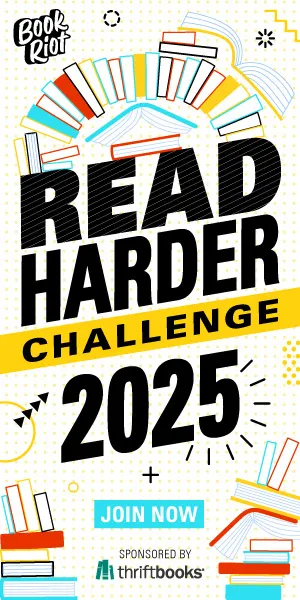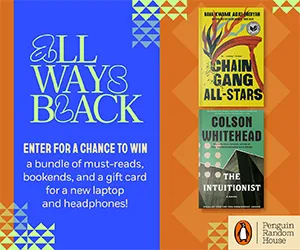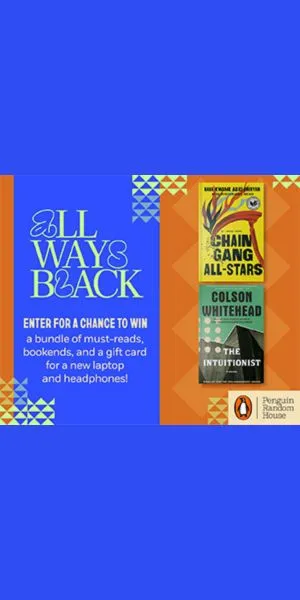
Censorship Trends For 2025, Part II: Book Censorship News, December 13, 2024
Last week, I highlighted several big-picture trends that we’ll see happening in book censorship in 2025. Those are far from the only trends emerging as we move forward, especially as a new administration amenable to revocation of human rights takes over. Here are several more censorship trends to prepare for in the coming year.
This list is not comprehensive. Instead, it’s meant to highlight a small number of things to pay attention to and to take action on when they arise. It’s also a reminder that personally stocking up on banned books or giving them away as gifts, while nice, is not actually doing anything to help stop the attacks on the democratic institutions of public libraries and public schools.
Taking that personal action with the belief that it is a solution to book banning is to not only not understand what book censorship looks like right now, it’s playing right into the very mentality of those seeking to destroy these institutions of access. Books will never go away, even if many of the themes or topics in them may; books will simply be because the luxury item is only accessible by those with the privilege and wealth to get them. This ongoing fight has not stretched out nearly half a decade because of fears around getting the books at the bookstore or online. It’s stretched out because the people who need access most are those who are most marginalized and who most benefit from strong institutions that have public support. Handing Nana a copy of To Kill a Mockingbird for Christmas does nothing to help ensure the lower-class queer Brown kid in Idaho has access to books with characters like them…or access to any books, to classes that strengthen their literacy, to experts in various subject fields, or to actual factual information at all.
That’s what is at stake here.
Read the first part of this two-part series here. If this is your starting place on book censorship, take the time to read through this guide to explaining book censorship to those who want to understand—there’s been a huge swell of interest in the last few weeks and dispelling a lot of common assumptions is crucial to make forward progress. If you work in a library or care deeply about your local school and public libraries, here’s your reminder of what you’ll want to do in these next several weeks to ensure your library is as protected as possible.
More Laws Mirroring Those in Utah and South Carolina Targeting School Libraries
Two states passed laws specifically targeting the collections of school libraries in 2024. These were not the first such laws to pass in various states, but they had a different flavor than laws passed previously. We’re seeing now how states are following the leads of Utah and South Carolina.
Utah’s new school library bill states that if a book has been banned in three public school districts, the state will put those books on a state-wide ban list. This particular bill is retroactive, meaning that the state is going through already submitted “sensitive materials” pulled by districts to determine if there are titles to be banned statewide. Their initial list released in August required the removal of 13 books statewide; they added an additional title in November.
South Carolina’s bill is not dissimilar from Utah’s, except that rather than have an established rule on what books can be considered for a statewide ban, the State Department of Education can choose whatever books they’d like to have up for consideration for ban statewide. This has led to seven books being banned—done via consent on Election Day when people were a little too busy to notice what was going on—and Ellen Hopkins’s Crank being retained in schools but only accessible via parental permission (an opt-in form). Three more books were discussed for potential removal in November that came at the behest of complaints from a single parent. One was declared fine for the schools but two more are still pending.
We’re going to see more laws similar to these popping up, as both Utah and South Carolina’s work has not yet been challenged or defeated in court as unconstitutional. Indeed, for all of the wailing about “local control” and “parental rights,” what will happen is a continued loss of local control and parental rights as state departments take over the work of deciding what everyone in the state can or cannot have access to in their publicly-funded institutions.
It won’t just be the development of new laws, though. We’ll see laws that are already in place shift to give ultimate authority to some state-level departments. This is happening in Tennessee this month. The state’s Age Appropriate Materials Act, which went into effect this year, bans any items in school libraries that have nudity, sexual excitement, sexual conduct, or excess violence. Materials also cannot appeal to the “prurient interests” of minor readers; this is, of course, a description that hands defining the thing right into the hands of legislators and they’ve jumped on it.
It was the Tennessee General Assembly who handed Knox County, Tennessee, schools with the list of books they need to remove from the district. District officials began by scouring materials, then submitting the list to the state, who made the final decisions. That’s neither local control nor parental rights.
That’s compliance with authoritarianism.
Keep an eye on this story, as is is likely going to be the case that these same books are banned in district after district in Tennessee. The state deemed these 40 books against the law in Knox County, and the fear of repercussions—from the state and/or from local bigots—will lead to their disappearance.
It is a state-sanctioned ban list, though not yet branded as such. It won’t be long until the branding comes.
More Laws Mirroring Idaho’s to Restrict Access to Public Libraries
What starts in the schools moves to the public library, as we’ve seen again and again and again. Anyone choosing not to see that is purposefully electing ignorance. Idaho legislators led with this in the 2024 session, passing an unpopular law that restricts access to any adult collections or materials in public libraries to anyone under 18.
To be fair, that’s not how the law is worded. The law grants excessive permission for parents to get litigious with their public libraries if the complaints they lodge against material they don’t like isn’t handled how they like or how fast they’d like. Several libraries in the state, realizing how impossible this law is to operate within, elected to either close their libraries to those under 18 or blocked access to entire sections of the library to minors.
Unfortunately, despite the relentless work librarians and library advocates did in Idaho to raise awareness of this pending law, citizen after citizen got on social media to be surprised about it when it directly impacted them. I can only imagine how infuriating that was for the folks yelling on the ground, whose voices were either not heard at all or purposefully ignored—it is easy for the average person to ignore pleas about elections or laws related to public libraries because the average person (fairly!) can’t fathom why the public library would be a target.
We are going to see laws like this emerge in 2025 in other states. Idaho’s law was, by political standards, a win. It caused havoc and put so much pressure on library workers that in order to even make opening the library compliant with the law that many had to simply close to young people and/or block off access to entire sections. This will be, of course, what then leads to funding losses in those very same libraries. Why would a community continue to fund an institution with their tax dollars when using the library has become a nightmare?
It won’t be the politicians who get blamed. It is—and will be—the library workers who you weren’t listening to in the first place. Hard not to see how a female-dominated profession begging for help is ignored or seen as simply hysterical (meanwhile, they’re depicted as sexually-obsessed groomers by those pushing these very laws).
Extremely Pricey School Board Campaigns for Spring/Fall Elections
One of the most vital ways to make an impact on the future of book censorship is to show up to school and library board meetings, whether in person or via email, with your comments. Another way is to run for the seats on those boards and ensure that these democratic institutions of civic engagement continue to be there to serve all.
School and library board elections are among the least voted on, even when on the primary election ballot. This is where and how so many fascist extremists have gotten their seats.
That’s not the only reason though. A major, consequential reason that needs to be understood and talked about as we enter another season of such elections is this: money.
School and library board elections are becoming incredibly expensive campaigns. This is thanks to special interest groups and political action groups funneling untold amounts of money into candidates who support their extremist positions. One especially terrifying example is that of Southlake, Texas’s Carroll Independent School District. Tens and hundreds of thousands of dollars were spent to recruit candidates in alignment with a far-right political group and then those candidates were flush with cash to make their elections successful. You can and should read the full story of this one in Mike Hixenbaugh’s They Came For The Schools.
In 2023, Pella Public Library (IA) faced the reality that their public library might no longer be an independent governmental body, thanks to complaints from a small portion of their community mad about—you guessed it!—books that depict queer people being people. Residents angry about the library’s decision not to ban a book led them to demand that Pella’s City Council put a referendum on the ballot which would allow elected officials to have more say in all of the materials available in the public library. (Indeed, the very people who insist they do not coparent with the government wanted the government to do as much of the parenting as possible!)
Pella’s library kept its independence after the vote, but it was a closer race than it had any right to be. Fewer than 100 votes determined the results. The reason? Money. The Des Moines Register noted that the group working to put the power of the library under the city’s control raised $10,5000 for their cause and that half of that money came from the host of a local Christian radio program. The group advocating for the library’s continued independence raised $9,000.
That is no small change.
Worth noting is that most of the money being poured into these elections and those we’ll see in 2025 will not be coming from local folks. They’ll be cross-state PACs or organizations coming in to have a say in the results of an election that has no impact on them because they’re not part of those communities.
It’s exhausting, but your job as a member of a democratic society is to ensure that people know who is behind the campaigns of your local school and library boards and any ballot measures related to them. You’ll see who is financing campaigns in disclosure documents that candidates must file, but you’ll see them on candidate paraphernalia. Find out who those PACs are and who those groups are helping steer the campaign. If they’re not local, that needs to be made loud and clear.
And if they’re local, chances are you’ve found some of the rich instigators who continue to have an outsized role in what services are and are not available for the whole community. If they are on behalf of tax-exempt religious groups and/or have their home base in a single church, that is a red flag that needs to be waved loudly.
Remember: these people don’t want to get rid of schools or libraries wholesale. They want to be able to destroy what’s there and build something new that they themselves can further profit from.
See: voucher schemes.
Questionable Rulings on Current Lawsuits Stemming from Who Appointed the Judge in the Case
Before we were staring down the barrel of an unapologetically fascist administration, lawsuits in book ban cases were the way forward through this period of relentless book censorship. Lawsuits are and will continue to be crucial to getting case law on the books and building a backlist of cases to turn related to student rights, community rights, and the ways in which book censorship impedes on the First Amendment Rights of all. Several of the lawsuits mentioned in the above link are still pending because anything in the courts takes a long, long time. That’s why some lawsuits are settled outside of court, as we’ve seen in the successful settlement by Peter Parnell and Justin Richardson over Nassau County School Board in Florida and their attempts to seek a settlement in the case they brought over Escambia County Schools, also in Florida.
Things are going to be a lot different now. With Trump having the power to appoint judges not only at the Supreme Court—recall that the only book banning case brought there was 1982’s Pico vs. Island Trees and it did not have a majority rule—but also elsewhere across the country, those who want to keep their jobs will be interpreting law in such a way to make it so. Empty judge roles will be filled by Trump and Trump-aligned appointees, further stacking the courts in favor of fascism and not citizens’ rights.
The arguments are going to get very weird very fast.
Take, for example, the comments made by a judge in Florida over the lawsuit filed by Penguin Random House, Hachette Book Group, HarperCollins Publishers, Macmillan Publishers, Simon & Schuster, and Sourcebooks, alongside the Authors Guild and several authors. The lawsuit claims the state has engaged in unconstitutional suppression of the First Amendment. Attorney General Ashley Moody responded to this by stating book removals in public schools are “government speech” and thus, among the exceptions to the application of the First Amendment.*
Moody is an appointee by Ron DeSantis. Her office has even sent politically-aligned people to make a similar argument in a court case over Texas book banning—something that she and her team in Florida have no connection to whatsoever. Local control and parental rights, the cornerstone arguments of the book banning moral crusaders, only applies to control by a central locale of far-right political persuasion.
The “government speech” argument Moody used was presented to the federal court judges overseeing the lawsuit. The Middle District of Florida Court is, you’ll be shocked to learn, primarily Trump appointees. Of the 12 District judges, 5 are Trump appointees, while several others are Bush Jr. or Sr. appointees (there are two Obama appointees and one Biden appointee).
Court cases can be boring for anyone who isn’t a law nerd or scholar of the law. But being aware of what’s going on is crucial because the people who are fighting in courts are making decisions on whether or not constitutional rights actually belong to you or not.
Those decisions are deeply impacted by who has the responsibility of assigning judgment duties.
*If book selection and removal were “government speech” in public school libraries, then every single one of those public schools would be fully staffed with degreed librarians and those librarians would have way better compensation and benefits packages than they do.
Library Workers and Educators Leaving in Droves
Library workers and educators are among the most poorly paid professionals in the United States, especially as their careers require an upfront cost in terms of at least one higher education degree (most librarians and teachers need at least two) and ongoing costs associated with maintaining licensure and/or continuing education.
With poor compensation comes poor benefits packages, alongside poor work-life balance because their institutions are consistently understaffed in the name of cost-cutting…some of it legitimate, most of it manufactured over things like ongoing voucher schemes (there that is again!).
Why would anyone stay when they are also relentlessly attacked by the media and by those brainwashed by the media online and in person? You can’t even look at a public library Facebook post about a new librarian without the bigot parade showing up “just asking questions.” No, really—it’s right here, and that’s but a single example of an ongoing trend.
If it’s not the temperature of the fields that drives out the best and brightest also pouring way too much of their personal time into their professions, it’ll be the boards who have power over whether or not they can even do their jobs. Here’s just a teeny tiny list of librarians who’ve left in recent months because they could no longer take being told by the board that they were incompetent or incapable of doing the jobs they have been working for years:
- Goshen Public Library (IN) Director Tabitha Guarnieri decided to leave her post after nonstop harassment over the public library having Gender Queer on shelves.
- North Shelby Library (AL) lost its director after a board takeover. The director didn’t want to ban LGBTQ+ books.
- The most recent director at Pawlet Public Library (VT) left after a short period, following the previous director leaving because of how terrible he was treated by some of the library board.
- The interim director at the beleaguered Alpena Public Library (MI) decided to step down from the role because of a targeted harassment campaign from book banners. Getting anyone to take this role and put up with a small contingent of absolutely hateful humans in this community will be a hurdle. (That’s the point, of course).
- While Jeff Scott continues to stand up for Washoe Public Library in his capacity as director, the way some of this board is treating him is despicable. Yes, that board was hijacked by the right.
Pulling out directors who’ve left their positions in libraries is easy because those are reported in public minutes—and in contentious libraries, sometimes the stories even make the news. We have little idea what the shedding of librarians looks like outside these leadership roles. One recent report on the situation comes from the Department for Professional Employees, which found that between 2022 and 2023, employment of librarians, library technicians, and library assistants declined with—wait for it—over a 10% decrease in library employment.

I suspect it won’t be too long before there are more reports more data pointing to a decrease in library workers…and no increase in open roles, as those jobs are either left unfilled, are difficult to fill because of what potential employees learn about the situations in those communities, or are splintered into several part-time roles without benefits.
The marketing for careers in librarianship about the flood of retirements didn’t have a clue what was coming with fascism.
Educators have it just as bad, if not worse. Who wants to enter a field with the goal of educating young people only to find out that most of their job is seeing their names and reputations slathered on social media in conjunction with the word “groomer?” Educators in most places cannot do the very thing they want to anymore without facing a barrage of mis- and dis- information from a small but well-connected and well-funded contingent.
Certainly, as the incoming administration wants to make discussion of mis- and dis- information illegal with potential repercussions of losing the right to vote, who is excited to sign on to being outlawed from teaching truth?
Yes, There’s More
While this list could include so much more, the onslaught of information is overwhelming. Just know with the potential dismantling of the Department of Education, the current Book Ban Czar will likely no longer have a job. His job was to help public schools navigate book challenges as they relate to educational laws such as Title IV, Title XI, and others.
Those things, of course, don’t actually matter to the incoming administration.
Despite the fact this is in every neighborhood in every state in the US, don’t be fooled. There will still also be a push by “good” folks in “blue” states to turn their noses down at the “bad” and “dumb” folks who choose to live in “red” states. We know most of those “red” states are that way due to systemic voter disenfranchisement and gerrymandering by the right, and yet, even the most well-intentioned folks in blue states continue to believe that people in Florida or Texas or Oklahoma “deserve” what they get.
That happens even as book censorship and attacks on libraries and public schools still rage in their own backyard. Yes, even in “good” states with anti-book banning laws, these institutions are not safe or protected.
If there’s one thing to take away from this, it’s this: besides knowing that your ability to engage in capitalism and buy your racist uncle a book by a Black author does not actually change a damn thing when it comes to book censorship (it instead plays right into the very thing that book banners want to call attention to—people who want those books enough will simply buy them—and ignores the reality that this is about access and destruction of public good and a public, period), sitting on your high horse because you live in a state you deem “good” and refusing to understand the conditions of a marginalized teen in Alabama or Florida is being complicit in the system of book censorship.
Instead, show the hell up and advocate for them. Listen to those on the ground in those states, and even if you cannot be there in person—no one expects that—you can listen and amplify those messages rather than shoot another stupid social media post about how glad you are you aren’t “dumb enough” to live in Texas.
As culture critic and writer s.e. smith put succinctly, we do not punish people for being trapped in violent institutions.
Book Censorship News: December 13, 2024
- “Against legal advice, a former Moms For Liberty member’s book rating website will now be the determining factor in which books get banned from St. Francis Area Schools Libraries.” Wild that it was just last week that I emphasized more institutions would be giving legitimacy to an unprofessional, slapdash “review” site. For these Minnesota students, information is about who is in power, not about actual facts, even against legal advice.
- Remember, anti-book ban bills aren’t actually a cure-all in the least. Seeking that $800-$2500 grant isn’t worth it to some who want the ability to ban books as they please. See: these schools in Illinois.
- Also in Illinois, there are candidates running for suburban school boards in the spring election that want to ban books.
- Apparently not a single person in Tennessee has appealed the decisions made by the state to remove books from school shelves.
- 25 more books are on the shortlist for consideration of being banned state wide in Utah public schools. For something that folks continue to demand is about parental rights or local control, there are two districts in the state that are the primary reason all of these books are being banned through the ENTIRE state.
- Speaking of states with book ban lists, State Representative Jared Patterson wants to get one going in Texas.
- “Several” families conveniently filed complaints against conveniently the same books in Platteville Middle School (WI). You’ll be shocked to see these books are similar to ones challenged elsewhere.
- Bruce Friedman, who got my book Body Talk banned in Clay County, Florida schools because of my “hit piece” on his book banning crusade, was invited to the Daily Show. You’ll be shocked to hear he doesn’t read the books he demands get banned…just as the headline on the piece that got my book banned by him said in 2022.
- It’s not just the US having far-right instigation in libraries. I’ve covered Australia, Canada, and Ireland over the last few years. This week, it’s Finland.
- “In a December 3 move that shocked library employees and advocates, the Liberty Lake City Council voted Kim Girard — a well-regarded and experienced librarian nearing the end of her first term — off the Liberty Lake Library Board of Trustees (WA).” The city council is eager to dismantle the library after it was finally made a little more stable. More here.
- Hernando School District (FL) is making final decisions on three books this week. The review committee recommends keeping all three with some restrictions (which is still censorship, to be clear).
- A nominee for the Hillsdale Public Library (MI) board was being asked questions about why he wants to be a trustee. The individual used to be into book banning, is in charge of a classical Christian academy (the kind angling for voucher money), and, oh, this little quote: “I do think the library is a vessel of our community,” Springer continued. “But I do think there is a lot of politics in the education of librarians.”
- The latest from the attempts to once again hijack control of Samuels Public Library (VA).
- East Hempfield Township, Pennsylvania, will not be making their annual donation to the Lancaster Public Library. It’s over a drag queen storytime event from March that never happened because there was, you know, a bomb threat. Apologies to the residents of that Township, as your village council is more concerned with fake outrage than helping you access materials.
- New Jersey has banned book bans in public schools and libraries. Spend some time reading about the librarian who helped get this passed and her experiences with book banners since 2021. Understand, too, how much her own school administration did not stand up for her.
- Williamson County Schools (TN) held a special meeting to ban three books and place restrictions on two more across the district.
- All Boys Aren’t Blue by George M. Johnson and Lucky by Alice Sebold were banned in Grants Pass School District 7 (OR). This happened after only two parental complaints, btw.
- “The Independent was told of a case of a parent requesting their child go to a different room when gender studies education is being taught among their peers.” This is over three books that are available for kindergarteners in Addison Central School District (VT). Your bigotry is so loud you pull your kids from a lesson where they might learn empathy. As mind-boggling as that is to comprehend, here’s the thing: that is the response to this, not removing the books from all. If you’re so angry about your kid’s learning, it’s your responsibility as a parent to take them out of the situation and not impede on the rest of the group’s right to learn.
- Menominee Falls (WI) parents are working to get the ban of Love Makes a Family overturned. Their angle, that this is a discrimination issue, is a good one because it is. (This angle won’t work when the US Department of Education is dismantled under the new administration, as the lawyers whose jobs it is to investigate these issues will be fired).
- Here’s To Us, a book published for YA readers, will (gasp) remain in the YA area of Citrus County Public Library (FL). It was one of several books challenged by a single citizen.
- Columbia County Libraries (GA) are in violation of the laws regarding collections in the state because (shocker) they were censoring material by removing it from appropriate youth areas and putting them in the adult section. It doesn’t matter, though, since they’re going to continue to censor via relocation.
- Thunder Bay Public Library in Ontario, Canada, has experienced another bomb threat in response to their hosting a Drag Queen Story Time.
- Albany County Supreme Court (NY) will hear the case of the book banners vs. Clyde-Savannah Junior-Senior High School on Valentine’s Day next year. This is about the pastor and Moms For Liberty members being mad five books were allowed to return to shelves in the school.
- The Artivist, a picture book about an artist, will not be banned in Pinellas School District (FL), despite nonsense spewed by parents that it was “too political.”
- This story is paywalled, but the long and short takeaway from context clues is to watch whether or not Campbell County Schools (TN) will be banning a huge list of books like other districts in the state.
- A bigoted pastor gave a dramatic performance to the Murfreesboro City School Board (TN) about how the children’s book It Feels Good to Be Yourself is inappropriate for children. The pastor was removed from the meeting. Note that this pastor is from North Carolina.
- Book banners in Tyler, Texas, proud of their THREE YEAR BATTLE to ban books from the public library, think that the city is now purposefully making it so their cadre of book banners cannot get on the library board.
- In Katy Independent School District (TX), at least 400+ books targeted for their LGBTQ+ content are staying on shelves while they’re being formally reconsidered. Except…students are being denied access if they attempt to check out any of them.
- Despite their book review committee recommending keeping these books on shelves, the Hernando County School Board of Education (FL) decided to ban The House on Mango Street, Graceling, and Real Live Boyfriends. For context, the average publication date is 2001, meaning these are even older than the “average” banned book age of 18. In other words, it’s a moral panic that, were a real issue, would’ve been brought up in 1984 or 2008 or 2010 when the books were actually new.
- Here’s a great piece from the ACLU on how the government has attempted to define “porn.”
- “As book bans soar, sales are down and librarians are afraid” is the most no shit headline in a while, but alas…it’s still going to be news to too many people.
- A local Houston pastor was given airtime on the Fox affiliate to complain about inappropriate digital books in Houston Independent School District (TX). Recall that many Houston ISD libraries aren’t even libraries anymore but disciplinary centers. That might be a more faith-aligned fight to be having here. But nah. We know the actual goal.
- This is paywalled, but Virginia Beach, Virginia, elementary schools have more time to go through their libraries and
ban booksensure their collections meet the standards ofthe far righttheir new state laws. - Sorry to see that Samuels Public Library—which already fought against closure because of a small group of people affiliated with a local church (btw, that church should have to pay taxes if that’s what their proud members are doing)—will now be overseen by a new board in the county that will, inevitably, not be working on behalf of the library.
- The School Board of Alachua County (FL) is potentially adding a new piece to their book review process, which is that people who aren’t residents of the county can only file one book complaint a month. Radical.
- Here’s more information about how the state of Florida is spending at least $15 million in taxpayer money to purchase software to “help” with book bans.


